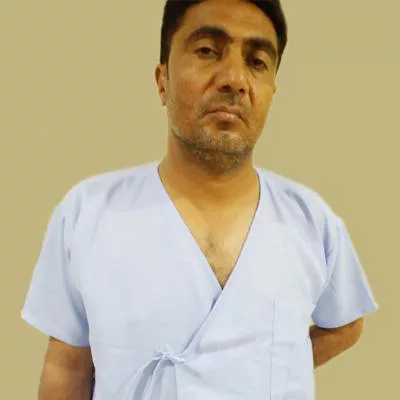Best Appendectomy Treatment & Diagnostics in Chunni Ganj, Kanpur
Appendectomy, also known as appendicectomy, refers to a surgical procedure that involves the removal of the appendix when it is infected. The condition when your appendix is infected or the inflammation of the appendix is called appendicitis. Removal of the appendix helps cures appendicitis. If appendicitis is left untreated, the appendix may rupture and lead to some very serious illness or can prove fatal.
The appendix is characterized as a thin pouch that is attached to your large intestine. It is located at the lower right part of your belly. If the appendix is removed, you can live without your appendix without developing any long-term issues. Appendectomy is a common surgery, although, it is referred to as a medical emergency. There are 2 types of surgery available to remove the appendix. The standard method is an open appendectomy. A newer and less invasive method is a laparoscopic appendectomy.

Why is an Appendectomy done?
The most common reason for an appendectomy is appendicitis. Appendicitis is a medical situation wherein the appendix becomes swollen and infected. This infection takes place when the appendix is clogged with bacteria. Thereby, leading the appendix to be inflamed and swollen
How to Prepare for Appendectomy?
Before you go in for an appendectomy, avoid eating or drinking for at least 8 hours before the surgery. Discuss your medical history in detail with your doctor to avoid any issues at the time of the procedure. Any allergy or history of bleeding disorder should also be discussed before the surgery. Make sure there is someone with you to take you home after the completion of the surgery. You would be given general anesthesia so that you do not feel any pain during the surgical procedure.
How is an Appendectomy performed?
Appendectomy is performed as emergency surgery. There are two types of appendectomies available. The type of appendectomy you undergo depends on several factors such as your medical history and severity of your condition. The two types of appendectomy are:
- Open Appendectomy
During an open appendectomy, a cut is made around the lower right part of your belly to open the abdominal area. After separating your abdominal muscles, your appendix will be removed. In case your appendix is found to be ruptured, the inner part of your abdomen is washed off using saltwater. The incision made will be closed with stitches. - Laparoscopic Appendectomy
A small incision is made for a laparoscopic tube, while other cuts may also be made for performing the surgery using other tools. The abdomen is inflated using carbon dioxide gas to allow the clear visibility of all the organs. The appendix is found using a laparoscope. Once found, it is tied off and removed. Thereafter the laparoscopic tube is removed, the carbon dioxide gas is allowed to move out of the body and a small tube may be placed to allow the drainage of fluids. The cuts are closed using stitches and a sterile dressing is used to cover the cuts. This type of appendectomy is considered to be a safer option and it also requires less recovery time. It is considered best for older adults and people who are overweight.
What happens after an Appendectomy?
After the surgery, you'll be kept under observation for some time where your breathing and heart rate are monitored. The time of your discharge depends on your physical condition and well-being.
What are the risks involved in an Appendectomy?
Although appendectomy is a common and simple procedure, it does involve certain risks such as:
- Unexpected bleeding
- Prone to catching an infection
- Blockage in bowels
- The nearby organs may get injured or infected
Request an appointment at Apollo Spectra Hospitals, Kanpur
Call 1860-500-2244 to book an appointment
Laparoscopic appendectomy is the preferred type of appendectomy out of the two types. It has certain advantages such as:
- A short duration process
- Less pain
- A smaller scar
- Fast recovery
Consult your doctor if you come across the following symptoms after appendectomy:
- Severe pain and swelling
- High fever
- Trouble breathing
- Nausea and vomiting
Yes, a general check-up with the doctor is required around 1 to 4 weeks after the surgery.
Symptoms
Our Patient Speaks
My name is Mohammed Ishaq and I am a resident of Banda, Uttar Pradesh. I have been coming to Apollo Spectra for quite some time now. On 13/08/2017, I experienced pain in my stomach. We visited Apollo Spectra Hospital, Kanpur and consulted Dr Mohammed Suhel, who suggested me to undergo Appendectomy (Removal of the appendix). Following the diagnosis, I was admitted to the hospital and the surgery was performed. The operation went great. During my stay at Apollo, I had the most comfortable experience. The services provided by the staff are commendable. The doctors here are highly skilled and polite. I thank Apollo Spectra for the great service and wish them good luck for the future.
Mohammed Ishaq
General and Laproscopic Surgery
Appendectomy
Our Top Specialities
NOTICE BOARD
CONTACT US
CONTACT US
 Book Appointment
Book Appointment



.svg)
.svg)
.svg)
.svg)








